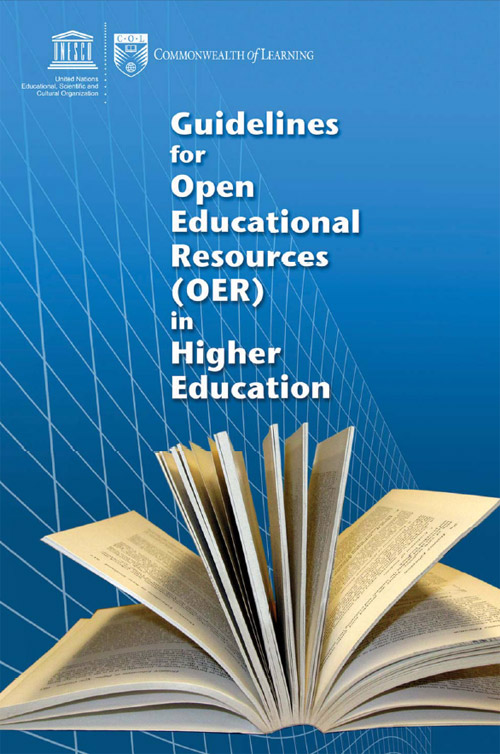Implementing the Paris OER Declaration

CC BY-Julien Hamou - Delegates at the OER Inception Meeting, UNESCO Headquarters.
The Paris OER Declaration, adopted during the World Open Educational Resources (OER) Congress held in June 2012 at UNESCO Headquarters, was the first step for the development of policies supporting OER. The Declaration aimed at encouraging governments to contribute to the awareness and the use of OER and to develop strategies and policies to integrate OER in education. UNESCO, in collaboration with the Commonwealth of Learning (COL), now wants to apply these guidelines and proposes to implement a series of global activities based on the 10 points of the Paris Declaration. UNESCO will organize, with the relevant stakeholders, advocacy and capacity building events, and will provide recommendations for developing educational policies supporting OER in 5 countries, representing 4 world regions.
Inception Meeting, 26-27 March, UNESCO HQ, Paris

CC BY attribution license UNESCO - Pak Ari Santoso and Pak Nizam from Indonesia
The first step of the project brought together representatives of four partner countries, OER experts, and UNESCO Specialists to discuss the modalities of the project and agree on the schedule of activities.
>> Read more
COMPONENTS
UNESCO proposes, with all relevant stakeholder, to design and implement a series of global activities based on all the 10-points of the Declaration.
- ADVOCACY - This component aims to foster awareness of OER.
- POLICY DEVELOPMENT - The activity will support national OER policies and strategies.
- TEACHER DEVELOPMENT - This activity will focus on the development and use of OER materials to support the contextualization of the ICT CFT.
>> Read more
Beneficiary Countries
Based on the 2012 World OER Survey conducted for the 2012 World OER Congress, the presence of strong UNESCO Field Offices and Headquarters of potential partners, UNESCO will focus proposes to focus activities on 5 countries representing 4 regions:
- Africa – SENEGAL and KENYA
- Arab States – OMAN
- Asia-Pacific – INDONESIA
- Latin America & Caribbean – COLUMBIA
These countries have expressed an interest in developing OER initiatives. They are all at different levels and have different needs in terms of ICT policies and OER in education. UNESCO is now working with them to prepare a policy to support and develop OER that fits with these needs.











